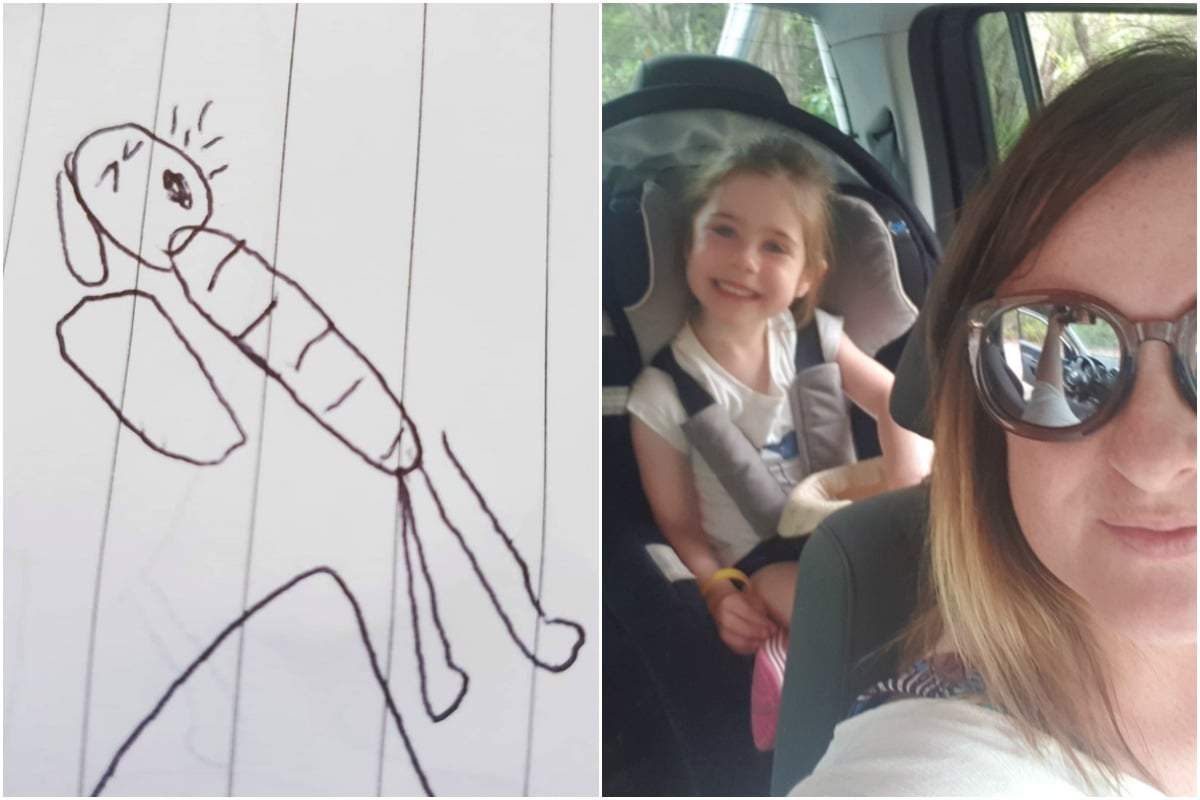
This is Robbo the teddy.
He has ‘the virus’ and is in hospital.
Robbo’s five-year-old owner, daughter of The Quicky host Claire Murphy, is just one of thousands of kids and adults across the country feeling on edge due to COVID-19.
“Thinking out loud to husband about whether 5yo’s sudden clinginess was virus panic related… he shows me this picture she drew this morning of her cherished teddy ‘Robbo’ who is in hospital with ‘the virus’ and now I’m too sad,” Claire wrote on Instagram.
